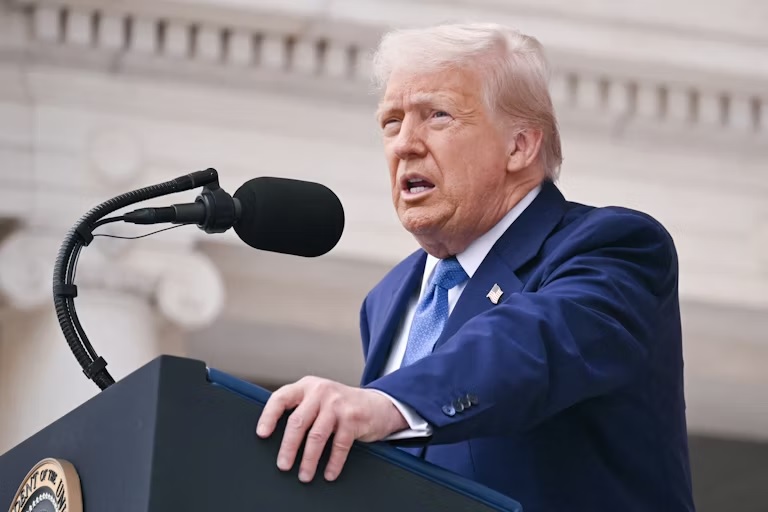The U.S. Supreme Court ruled on Friday, May 30, 2025, that the administration of President Donald Trump can temporarily revoke the legal protections granted to more than 500,000 migrants currently residing in the US.
This decision pauses a previous federal court ruling that had blocked efforts to terminate a humanitarian immigration program known as parole, originally expanded under former President Joe Biden.
The program, formally called the CHNV humanitarian parole program, was designed to provide temporary relief to migrants from countries facing extreme political or economic crises.
Specifically, it applies to individuals from Cuba, Haiti, Nicaragua, and Venezuela.
With the Supreme Court’s ruling, approximately 530,000 migrants from these nations now face potential deportation.
The ruling came in response to an emergency appeal filed by the Trump administration.
A federal judge in Massachusetts had earlier ruled against Trump’s attempt to shut down the program.
This prompted the administration to seek intervention from the Supreme Court.
Parole, as defined by U.S. immigration policy, allows certain individuals to remain in the country for up to two years.
This is due to what it called “urgent humanitarian reasons or significant public benefit.”
Those granted parole can live and work in the U.S. during this period.
However, the status is temporary and subject to change based on government policy.
Trump first targeted parole programs on the day he assumed office.
He signed an executive order that directed the Department of Homeland Security (DHS) to begin dismantling them.
Then, in March, DHS Secretary Kristi Noem officially announced the termination of the CHNV humanitarian parole program.
Several migrant advocacy groups and individuals affected by the policy change filed lawsuits challenging the administration’s decision.
They argued that deporting individuals covered under the program could expose them to severe danger, persecution, or even death if forced to return to unstable conditions in their home countries.
Despite those concerns, the Supreme Court sided with the administration, allowing it to proceed with the rollback while legal battles continue.
The Court’s three liberal justices were not in full agreement.
Justices Ketanji Brown Jackson and Sonia Sotomayor both dissented from the majority opinion.
Justice Jackson, in her dissenting statement, warned that the Court’s decision would lead to “the lives of half a million migrants unravel[ing] all around us before the courts decide their legal claims.”
The White House, under the Trump administration, viewed the Supreme Court’s decision as a victory.
Stephen Miller, said in a statement to CNN that the ruling gave the administration a chance to deport what he referred to as 500,000 “invaders.”
Miller was Trump’s former deputy chief of staff and a key architect of his immigration policies.
He praised the Court for “justly stepping in.”
The CHNV program is only one aspect of broader humanitarian immigration relief historically provided by the U.S.
Humanitarian parole has long been used to admit people fleeing war or government oppression.
For instance, in the 1960s, Cubans were granted parole following the revolution in their country.
President Biden had used similar humanitarian provisions during his term.
In 2022, his administration created a parole program to accommodate Ukrainians displaced by Russia’s invasion, showing that such policies have been employed across party lines in times of global crises.
This recent ruling follows another Supreme Court decision earlier in the month.
The ruling allowed Trump-era officials to revoke Temporary Protected Status (TPS) for around 350,000 Venezuelans living in the U.S.
TPS, though separate from parole, offers similar temporary legal protections for individuals from countries experiencing extraordinary hardship, such as armed conflict or natural disasters.
Together, the rollback of both CHNV parole and TPS represents a significant shift in U.S. immigration policy, particularly for those relying on temporary protections.
These rulings are technically temporary and allow time for further legal proceedings.
On the other hand, the immediate consequences for hundreds of thousands of migrants are potentially severe.
The future of these individuals now depends not only on upcoming court decisions but also on how future administrations choose to interpret and implement immigration laws.
This highlights the ongoing tension between executive authority, humanitarian responsibility, and judicial oversight in U.S. immigration policy.







